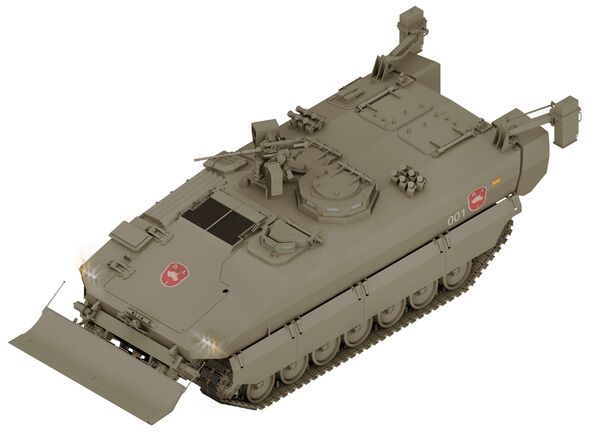
The VAC will be based on the Spanish Army's Pizarro IFV and Castor AEV (pictured). (GDELS)
Spain plans to sign a contract for the Vehículo de Apoyo de Cadenas (VAC) Tracked Support Vehicle contract in December, Colonel Antonio Llorens Perez, who is responsible for the Pizarro infantry fighting vehicle (IFV) and VAC programmes in the Spanish Ministry of Defence's Directorate-General for Armament and Material (DGAM), told the last day of SAE Media Group's Future Armoured Vehicles Survivability (FAVS) 2023 conference held in London from 13 to 15 November. Col Llorens addressed the conference virtually as he had to stay in Madrid to negotiate the VAC contract.
Col Llorens said the combat support and logistics vehicle would be based on the Austro-Spanish Cooperative Development (ASCOD) platform and would replace the Spanish Army's M113 armoured personnel carriers (APCs), outfitting two of the service's mechanised brigades. The VAC will weigh 34 tonnes and have a speed of up to 74 km/h and a range of 450 km on paved roads. The VAC will exist in command post, APC, armoured engineer vehicle (AEV), mortar carrier, anti-tank, artillery forward observer, cargo, armoured cargo, recovery, and ambulance versions, according to Col Llorens.
He noted that the VAC programme is funded and is expected to bolster Spanish industry. On 22 August Spain's council of ministers approved the first phase of the programme for 394 VAC vehicles worth EUR1.95 billion (USD2.1 billion).
Regarding survivability, Col Llorens said the VAC would have a high level of NATO Standardization Agreement (STANAG) 4569 protection, add-on armour, a soft-kill armour protection system (APS) for most variants, a hard-kill APS for some versions, a spall liner, and slat armour.
Looking to read the full article?
Gain unlimited access to Janes news and more...







